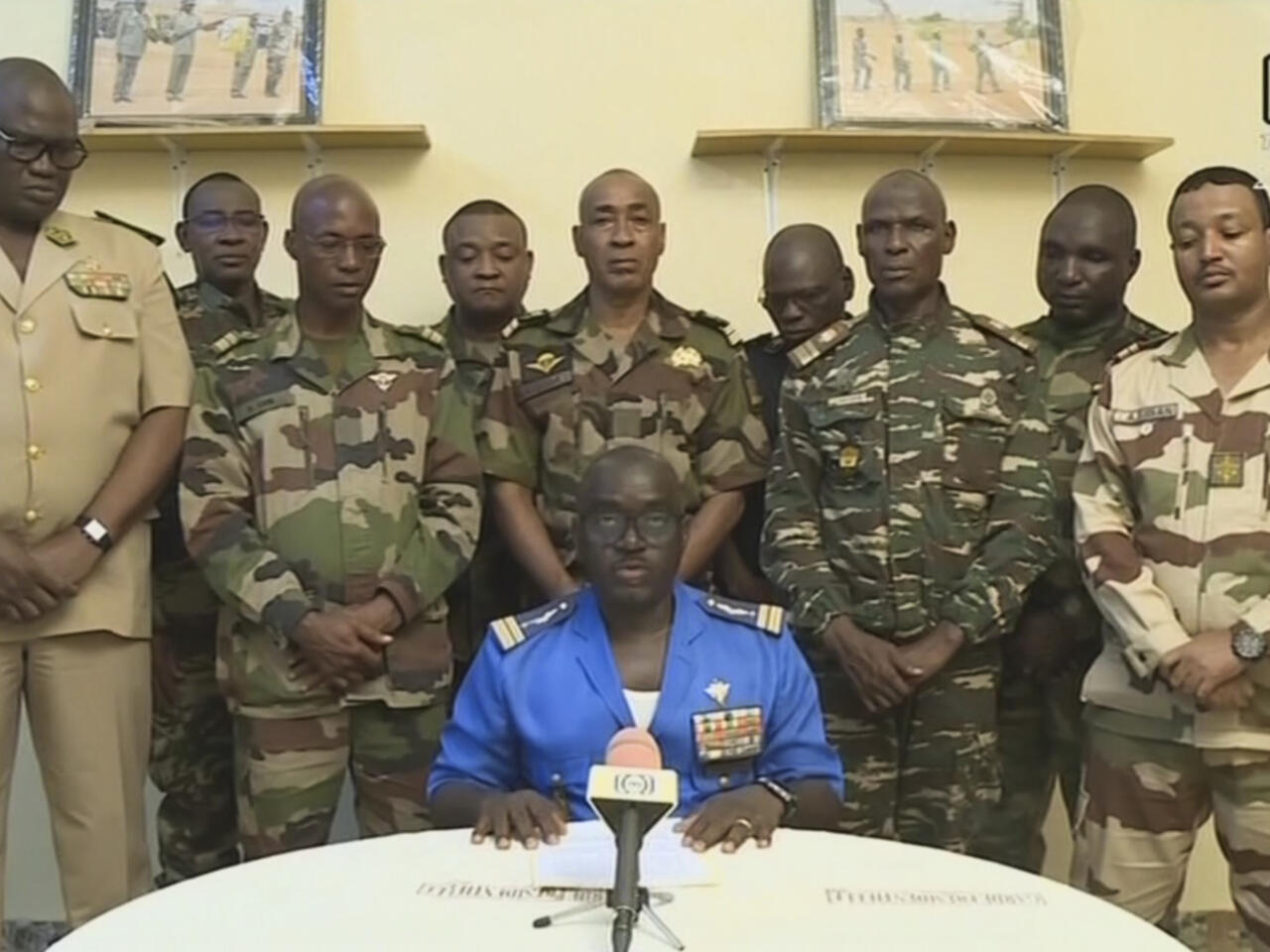When Pakistani medical student, Salman Ahmad, stood up to twiddle his guitar, to the delight of all, at a student talent show event in a Lahore hotel in 1980, he was oblivious to the raging silent war between religion, music and sports. As he sang, a Pakistani fanatic dashed to the stage, snatched Ahmad’s Gibson Les Paul guitar from around his neck and smashed it into smithereens. Nothing happened. The fanatic could not understand Ahmad’s temerity to play rock music or music in general which Arabs potentates of the Islamic religion once referred to as “a prompting of the Devil” and an affront to Islam. As if leaving the frying pan for fire, Ahmad recoiled off music to his other passion of playing cricket. He got it to the highest octave, even playing alongside Imran Khan, Pakistani cricket World Cup player.
Not satisfied with himself, Ahmad made a momentary return to the “prompting of the Devil” on a cricket tour of Bangladesh. He then began to combine classic rock and blues, mixing them with the mystical music and poetry of Islamic Sufism, to form a blend of what he called “Sufi rock”. Under threats from the military regime of General Muhammad Zia-ul-Haq, Ahmad went underground. To Islamists, Zia-ul-Haq got praises for his “de-secularization efforts and stern opposition to Western culture”. To the world out there, however, Zia-ul-Haq was authoritarian, especially in his press censorship, religious intolerance and weakening of Pakistani democracy. Upon his death, Ahmad became a celebrated rock star and his songs, were a representation of a progressive Pakistan. As he wrote in his biography, Rock and Roll Jihad, it became a life struggle for him to get music positioned as an integral and crucial part of Islam.
Popular American-Nigerian singer, David Adeleke, last week had a brush with his own Pakistani fanatics as he courted the intolerance of Muslim youths. For his temerity to share his musical video, ‘Jaye Lo’, on his social media handles, the penalty was a quaint colouring of social media with hate against his person and music. A Muslim group even set his posters ablaze as a representation of their anger. Davido had misrepresented Islam as the preoccupation of sybarites, they alleged. The ‘Jaye Lo’ video had backup singers dressed as Muslim faithful, in white flowing apparel and cap. All of a sudden, the group transmuted into hip-hop music dancers. Davido himself sat on a building that looked like the roof of a mosque, complete with a loudspeaker, like a muezzin. The video immediately sparked outrage and divided opinions. How dare Davido drag the holy religion into such typecast of a mundane, pleasure-seeking, dancing groove? By such representation, Davido had painted a pagan image of Islam and mis-situated the religion in the imagery of carnal engagement.
The same week, at the Brisbane Stadium in Australia, while Nigerians momentarily forgot the harrowing pain inflicted on them by their new rulers and were wrapped up in celebration of the country’s win in the women’s World Cup football event, the “prompting of the Devil” debate returned at full throttle. Apparently overtly animated by her 72nd-minute maverick shot that netted a third goal for Nigeria against Australia, Super Falcons’ Asisat Oshoala pulled off her shirt, leaving almost her lingerie.
Advertisement
The Oshoala celebratory pull of shirt has since provoked a huge hoopla. Social media went abuzz with back-and-forth conversations wrapped around the act. Photos of Oshoala, a Muslim, praying and wrapped up in the Islamic Hijab, sprung up. She was not only exposed to sexualizing diatribes, but Muslims also weaponised religion to cast her in the mould of an infidel.
From the time of the earliest theology, theologians of all religions have had dissenting opinions about music. Questions asked are, what is music’s place in religious rituals? Is music beneficial to the soul? Does it encroach on the boundary of morals? Is the problem strictly with some musical instruments? The bata, for instance, an ancient drum associated with the liturgy of traditional religious worship, is frowned upon in some churches to date. What occasions and times should particular music be played? Are some genders morally and spiritually unsuitable for some music? And in sports, which require terse dressing to ensure easy movement of concerned sports persons, should female gender sport adherents be part of it and if they are, should they too be tersely clad like their male counterparts?
When traditional African Yoruba music genres of Sakara, Apala, Fuji and Waka began to emerge in the early 18th century, they faced strict censure from their listening audience. Most of them had mutated from the Islamic liturgical practice of Ajisari music used to wake the Islamic faithful during the fasting period. Though mostly in the form of praise songs and engendered by traditional Yoruba instruments like the solemn-sounding goje violin and a tambourine-like small, round sakara drum hit with a stick, as well as agidigbo, the music’s Arabic ancestry manifested in its traditional percussion instruments which were very implicit. Abibu Oluwa, who pioneered Sakara in the 1930s; Jibowu Barrister of Fuji, Haruna Ishola of Apala and all who came immediately after them faced critics who claimed that they were polluting the Islamic faith with their songs. This necessitated a defence made into a track in an early musical career song of Ayinla Omowura. Alcohol, and not music, pollutes Islam because even Arabs who lived in Mecca, Ayinla sang, are involved in music. He sang: “Ara Mon…Ara Monka ns’esin/Ilu o b’esin je o, oti ma lo b’esin je…“.
Advertisement
While in 2003/2004, a minor city in Sweden was faced with a row of a woman who got converted to Islam but decided to engage in a legal battle to get her seven-year-old son exempted from music instruction in school, Islam wasn’t the sole attacker of music. American pop musician, Marvin Gaye’s death revealed this. He had had bitter childhood rancour with his father. However, on April 1, 1984, his Christian minister and strict disciplinarian father committed filicide by shooting him twice in the heart at their Western Heights neighbourhood house in Los Angeles, California. Gay Snr. highly disapproved of his son’s “sexual ambiguity”, with widespread rumour that the hip-hop musician was a homosexual. Gaye was also a user of hard drugs and had gone paranoid and suicidal before he met his untimely death at the age of 45. Indeed, traces of cocaine were found in a later autopsy conducted on his corpse. The older Gay highly excoriated Gaye’s career in music and was more resentful that Gaye was closer to his mother, Alberta, especially when the musician became the breadwinner for the family. Marvin’s highly successful but sexually explicit ‘Sexual Healing’ track, from the album, Midnight Love, further put a wedge between father and son. How could the son of a minister sing such a song?
Over centuries, Islamic scholars have debated the propriety of music to the religion. Islamic scholars, in the Hadith collections of the late 8th and early 9th centuries, said that even Muhammed was ambivalent about music, shunning and embracing it as inherently haram or as halal. Islamic scholars who preach tolerant views on music say that even in the Qur’an, the prophet never gave a clear statement on music whenever he described social life or gave advice on morals. In a particular Hadith, Muhammed was said to have encouraged songs at weddings, though also prophesying that, at the end of time, music would become one of the signs of moral chaos. Ibn ‘Abd Rabbihi (d. 940) while discussing music in Kitab al-‘iqd al-farid (The Book of the Unique Necklace), which is regarded as one of the oldest surviving texts in Islam, had been quoted to have said: “And sometimes one apprehends the blessings of this world and the next through beautiful melodies. And a proof of that is that they induce generosities of character in performing kindness, observing family ties, defending one’s honour, and overlooking faults. And sometimes a man will weep over his sins through them, and the heart will be softened from its hardness, and man will remember the joys of the Kingdom [of Heaven], and image it in his mind”. Umayyad Caliph ibn Walid (d. 744) renowned for his asceticism, was quoted to have said, on the reverse: “O, Umaiyads, avoid singing for it decreases shame, increases desire, and destroys manliness, and verily it takes the place of wine and does what drunkenness does. But if you must engage in it, keep the women and children away from it, for singing is the instigator of fornication”.
It was apparently this attitude that Nigerian Netizens took to attacking the duo of Davido and Oshoala last week. Some said that since African values frown at nudity, Oshoala shouldn’t have pulled off her shirt. Did African progenitors, in setting the boundary of culture, reckon with playing football, especially a woman footballer who, seized by a spontaneous celebratory spirit, pulled off her shirt? This intolerance is rank intolerance. It is also a failure to apprehend the fact that, unlike what operated in the early centuries when religion was lord of the universe, religion has scant influence now. It is this same attitude that is taken to violent reactions to the burning of the Quran and, in a lesser degree of bile, reactions to the burning of the Bible. When far-right politician, Islamphobic Rasmus Paludan, burnt the Quran in Sweden on January 21, 2023, a floodgate of reactions was opened into the debate. About two weeks before this in Stockholm, police claimed they authorised a protest by a man who wanted to burn the Torah and the Bible outside the Israeli Embassy. He said it was a riposte to Quran burning outside a Stockholm mosque earlier by an Iraqi immigrant. Were these two Quran and Bible-burning exercises of freedom of expression? Did the culprits, in the process, infringe on the harm principle? The harm principle holds that the actions of individuals should be limited only to preventing harm to other individuals. So, what harm is inflicted on a Christian or Muslim if the Quran or the Bible is burnt? Why are they bothered by outward appearances that do not endure, at the expense of the more enduring subject of the soul and humanity?
The defence by religionists is that burning those religious texts is deeply offensive and incites violence or hatred against some individuals or groups. Why can’t Bible and Quran burning incidents be seen as freedom of expression? Why must religionists go violent because a non-living object has been burnt but, in the same vein, see it as the wish of God when a human being is murdered? Does the burning of a religious text, in any way, de-masculinise the religion? It has often been said that Muslims see the Quran as not just a book, but a sacred text which holds great spiritual and religious significance and a symbol of the Islamic faith. Its burning is then seen as a visceral attack and insult to Allah, as well as a desecration of Islam. If that is the case, why don’t we leave the all-powerful God to avenge infidels who desecrate the text? Is the God/god of a religion worthy of being worshipped if we have to fight for him?
Advertisement
In Nigeria, so many people have been killed by fanatics on the pretext of fighting for God. Gideon Akaluka was beheaded in Kano in 1995 by a group of nine Wahabists. A man who eventually rose to the zenith of Nigerian banking was even alleged to be part of the conspiracy. In May last year, Deborah Yakubu, a Home Economics sophomore at the Shehu Shagari College of Education in Sokoto, was gruesomely murdered for having “blasphemed” Islam and Prophet Muhammed through a voice note on a WhatsApp group she left in response to another student’s post on Islam. She was forcibly pulled out of a room and her student colleagues repeatedly bayoneted her with stones and clubs. They then set her lifeless body on fire as they shouted: “Allahu Akbar (God is great)”. Till today, the Nigerian government’s connivance in this horror is manifest in that no one has since been brought to book.
There is no difference between the intolerance of those who killed Deborah, those who beheaded Akaluka, the ones calling for Davido’s head over his song and those heaping invectives on Oshoala. They are all united by pristine ignorance and Stone Age sheepish abidance to religious exegeses. One such was a fellow called Bashir Ahmad, an ex-President Muhammad Buhari’s aide who labelled the video “hurtful” and “disrespectful”. To who? Must he listen to the song? Why not concentrate on listening to the usual Quranic recitation rhymes and leave those who wanted to enjoy Davido’s songs to bother about it? Why should it bother me that someone is tearing the Bible? Those religious texts are not in any way different from Friedrich Nietzsche’s Thus Says Zarathustra. They only assume greater importance in the way we deploy them for the betterment of our lives. The problem is a tyranny of the mind, a war that the two religions – Christianity and Islam – inflict on the other person. Why not be content with what you believe in and go to heaven and give others the freedom to go to hell if they so wish? Why play God?
The Niger coup, Emefiele and the president’s friend, Asari
Africa slumped again last week into the hands of its traditional enemies. The continent has not been the same since midnight of January 13, 1963. On this day, a band of military putschists, led by Etienne Gnasingbe Eyadema and Emmanuel Bodjolle, shot and killed the civilian president of Togo, Sylvanus Olympio, and his wife. Togo then became the first of such violent takeover of men in Khaki in the French and British colonies of Africa, thus breaking the symbolic hymen of the innocence of Africa. The wave of democratisation in those erstwhile colonies in the 1990s and 2000s had however made many believe that coups d’etat had become unfashionable and otiose. However, Africa’s turbulent Sahel region, since 2020, has been confronted with a rampaging jihadist insurgency that birthed and nurtured coups in Mali and Burkina Faso. Its latest rupture is Niger. Right now, President Mohamed Bazoum is being confined to his residence by his presidential guard, commanded by 10 coup leaders led by Colonel Amadou Abdramane.
Advertisement
A lot has been written about why the Nigerien coupists struck. International organisations and allies, France, Germany and the United States have also condemned the coup. Nigerian president, Bola Tinubu, chairman of the Economic Community of West African States (ECOWAS), convoked an emergency meeting in Abuja on Friday. Earlier on Thursday, ECOWAS had “demanded the immediate release of President Mohamed Bazoum who remains the legitimate and legal president of Niger”. Tinubu also sent the president of neighbouring Benin, Patrice Talon, to Niamey to seek restoration to the status quo. Apparently heeding the menacing threat from Colonel Abdramane to any nation not to interfere, Talon has tarried.
From the pattern of coups in Africa, Tinubu and his African leadership can only huff and puff as there is little in form of remedy that can be offered Bazoum. Already, general acceptance of the coup is at a frightening and dizzying point. Youths in Niamey were shown on global television ransacking the headquarters of Bazoum’s PNDS party and setting fire to vehicles kept in it. Youngsters numbering about 1,000 had matched towards the country’s national assembly, as well as several hundred others who matched out to Dosso town to show solidarity for the coup plotters. The super-power angle to the coup is reflected in Russian flags that were being flung by pro-Abdramane Nigeriens and anti-French, pro-Russian slogans being sung by the protesters.
Advertisement
Aside from the probable superpowers angling for the soul of Niger, Bazoum was reported to have run a very fragile government. Several attempts were also made to de-legitimise his government due to contestations over his election outcome. Since taking over power two years ago in what was said to be Niger’s first-ever peaceful transition since independence, Bazoum had been encumbered by legitimacy crises, with some top echelon of the military displeased with him. Niger is also torn apart by dual jihadist onslaughts.
Why African leaders must be bothered about the coup in Niger is the widespread public support it is getting from Nigeriens. While many parts of Africa have realised that coup plotting is evil and the putschists not necessarily as Messianic as they profess, it will be difficult to canvass this in an Africa suffering from the high-handedness of its leadership and the absence of apt mental component in the administration of Africa that can stem descent into hunger by the populace. Rather than flexing muscles in post-coup scenarios, African leaders must run inclusive, people-oriented and developmental governments that will make life livable for their people.
Advertisement
In today’s Nigeria, phenomenal hunger is wracking the bellies of the populace while the government keeps on urging the people to salivate on ayangbe aja – grilled dog meat – that they claim awaits the populace at the end of its harrowing economic policies. Meanwhile, principal elements of the government are growing rotund cheeks and wriggling in alleged corruption bazaars in the last two months or so.
In Nigeria last week, for example, the country presented a perfect effigy of Dolly Parton’s ‘Coat of Many Colours’. Colour red however dominated the rainbow picturesque. The treatment given to Godwin Emefiele and Abdulbashir Bawa, erstwhile heads of CBN and EFCC, appears principally vendetta driven. Some say it is indicative of the fact that Nigeria may be going gradually down River Road – apologies to Kenyan writer, Meja Mwangi. At the Federal High Court in Ikoyi, Lagos last week, the raw brunt of crude power was hoisted for all to see and probably a feel of the governmental engagements to come. Not only was the pronouncement of the court granting Emefiele bail not heeded by a so-called democratic government, but the government has also since kept mute as the DSS and the prisons engaged in a show of shame to the chagrin of the whole world. No matter how execrable Emefiele may have behaved as the CBN governor, we owe ourselves the duty of calling for the protection of his human rights. The same man that the DSS, a few months ago, accused of terrorism financing is being charged for possessing a sparrow-hunting dane gun!
Advertisement
The quotation ascribed to the famous Lutheran pastor, Martin Niemollar, should be our national guiding principle. We must not abet high-handed vindictiveness in any guise. After being in Nazi prisons and concentration camps for eight years, Niemolla made the poetic statement: “First, they came for the socialists and I did not speak out, because I was not a socialist… then they came for the Jews and I did not speak out, because I was not a Jew; then they came for me and there was not one left to speak for me”.
Up there in the creeks is an infamous terror-baiting, octopus-statured militant by the name of Asari Dokubo. He has openly wielded AK-47 Assault rifles and has flaunted a rag-tag militia he is training. Right there in Nigeria’s hallowed seat of power, where the president of the republic sits, this barrel-chested individual, smarting from an openly advertised visit to the president, insulted Nigeria’s military, claiming that they were not only responsible for stealing the nation’s crude oil but that he is the one providing security for Nigerians. Our president is still enjoying this raw, dry joke.
Rather than huff and puff over military hijacks of democracy, African leaders need to be told that the only antidote against coups is good governance. We have had Baby and Papa tyrants in Africa and regimes of massive corruption that have denied the continent of its flourishing. We cannot afford to continue on that route. Military adventurers have blighted the vine of Africa. They are responsible for why Nigeria and Africa are this anaemic.
Views expressed by contributors are strictly personal and not of TheCable.
Add a comment







